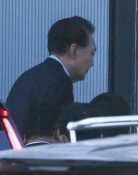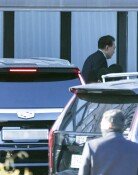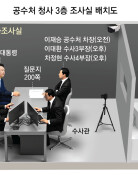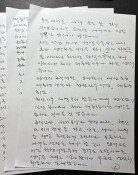Japan’s reflection on its history
Japan’s reflection on its history
Posted January. 13, 2025 08:21,
Updated January. 13, 2025 08:21
It was a coincidence that I visited the Kamikaze base in Kasama, Japan in December last year. I could not look away while watching a TV program introducing a special exhibition on kamikaze pilots. “We want you to imagine the tragedy of war from both sides—from the side that gave the orders (the commander) and the side that carried them out (the soldier),” said the person in charge of the exhibit. I felt that this reflected the average Japanese perspective on war.
What is now a psychiatric hospital was once the headquarters of the Naval Air Force, a commando unit, 80 years ago. Col. Motoharu Okamura, who was appointed to command the air force in 1944, spearheaded the unit. The commandos carried out an unprecedented suicide raid in world history during the Battle of Okinawa, Japan's largest ground battle of the Pacific War. However, there has been little self-reflection on their role in starting the war. Even ordinary Japanese, who do not glorify war, often repeat the phrase, “There should never be another war,” instead of reflecting on themselves and admitting their mistakes.
The kamikaze suicide raids were not merely reckless maneuvers in which Japanese fighter planes crashed into U.S. aircraft carriers. They were extreme war crimes in which Japan exploited its own citizens and colonized peoples as scapegoats of war for the sake of the nation. After their defeat, the Japanese destroyed many war records by burning them, but they could not erase all traces of the sacrifices made by Koreans. To this day, the truth about how Koreans were rounded up and subjected to harsh discrimination remains unclear. We can only catch glimpses through records such as the passenger list of the Ukishima Maru, which sank while carrying Koreans 80 years ago, and the tobacco ration lists for Koreans at the Sado mine, where they were forcibly conscripted to work.
This year, Japan is reflecting on 100 years since the beginning of the Showa era and 80 years of the postwar period. The country is looking back at the Showa era, encompassing a deluge of war, defeat, and economic growth while vowing to uphold 80 years of peace. Emperor Naruhito also plans to embark on a “tour to appease the spirits of the dead” in Okinawa, Hiroshima, and Nagasaki, areas that symbolize the war in Japan.
However, no responsible Japanese politician has actively spoken about “postwar reflection.” Japanese Prime Minister Shigeru Ishiba merely stated, “On the occasion of the 80th anniversary of the end of the war, I would like this to be a year in which we once again think about and practice what role our country (Japan) should play in international peace and security.” The past is absent here. Without acknowledgment of the past, reflection is, of course, impossible.
Marking the 80th anniversary of Japan's defeat and the 60th anniversary of the normalization of diplomatic relations between South Korea and Japan, this year presents an opportunity to take a significant step forward in improving relations and strengthening cooperation. However, this requires genuine reflection from Japan on its history. Today's visit by Foreign Minister Takeshi Iwaya marks the beginning of Japan's “80 years of postwar and 60 years of diplomatic normalization” policy toward South Korea. If the current political situation in South Korea is used as an excuse, it is unlikely that South Korea-Japan relations will improve, regardless of who becomes the new president.







